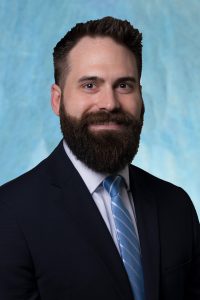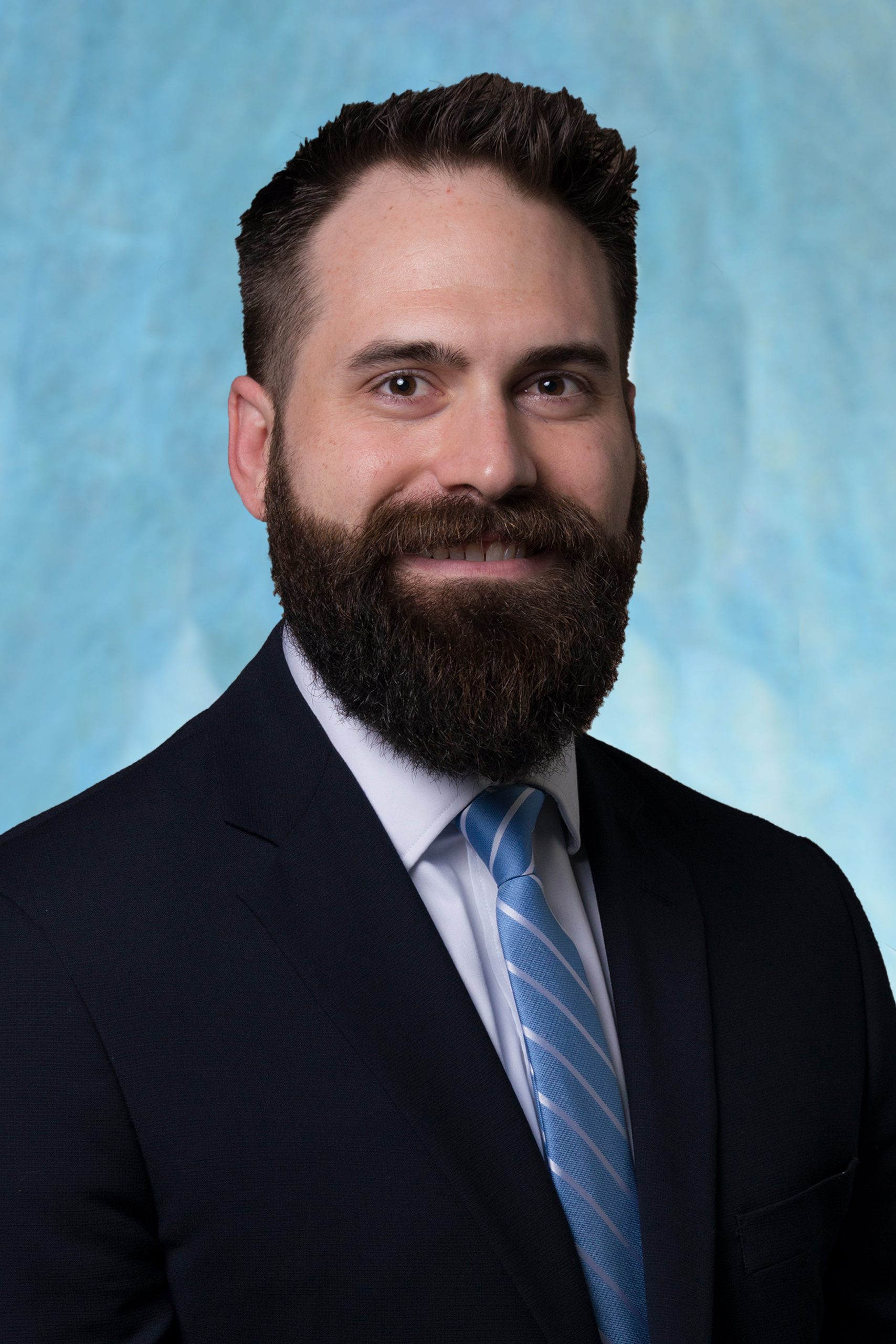Michael LeCompte, MD, is the new assistant professor in the Department Surgery in the Division of Surgical Oncology at UNC/REX. He sat down to discuss how his childhood growing up in Africa inspired him to pursue medicine and how the need for Surgical Oncologists not just in the United States but oversees influenced his decision to focus on hepatobiliary surgery.

Michael LeCompte, MD, is the new assistant professor in the Department Surgery in the Division of Surgical Oncology at UNC/REX. He sat down to discuss how his childhood growing up in Africa inspired him to pursue medicine and how the need for Surgical Oncologists not just in the United States but oversees influenced his decision to focus on hepatobiliary surgery.

Dr. LeCompte received his undergraduate degree in cell and molecular biology from the University of Louisville in 2008 and continued there to earn his medical degree in 2012. He completed his general surgery residency and his critical care fellowship at Vanderbilt University in 2018. Most recently, Dr. LeCompte completed his hepatobiliary fellowship training at Washington University St. Louis. We are pleased to announce that this is our first UNC/REX joint appointment. He will specialize in gastrointestinal surgery, and his office is located at REX in Raleigh.
What inspired you to become a doctor?
I grew up overseas in Africa until the age of 13. My parents were missionaries, though not clinicians, and they did a lot of work in the medical field. My dad flew a helicopter for a medical team in Kenya, flying all over the country supporting their mission. At an early age, I was exposed to a culture of helping others and making a difference in the lives of those around me. Some of my earliest memories are joining my dad in the helicopter, flying out to villages and administering polio vaccines to kids. It had a big impact on me and instilled the desire to be a physician.
What inspired you to become a surgeon?
When I went to medical school, I was gung-ho that I was going to pursue family medicine. I was so sure it was what I wanted that I pursued and achieved the position of President of the family medicine interest group. Throughout medical school, I developed an interest in surgery, not surprising since anatomy was my favorite class. During my third year clerkship, I had my surgery and family medicine rotations back to back. I quickly realized that I could easily spend 12 hours in the operating room, whereas four hours in the family medicine clinic felt much more laborious.
I chose Surgical Oncology as my specialty because of the need, especially overseas. Cancer has been an overlooked disease in developing countries that historically focused mostly on infectious issues and trauma. Hepatobiliary cancers, in particular, have a much higher incidence in third world countries like Asia and Africa.
Another aspect of surgical oncology I enjoy is challenging cases. The intricacies of the anatomy and the challenge of these procedures versus others. It’s also why I gravitated towards the complexity of hepatobiliary surgery and Surgical Oncology.
Has your specialty met your expectations?
I really enjoyed my training and fellowship. I feel it stimulates my drive to continue to excel and improve. I don’t get bored going to work and doing the same thing over and over and over; every day is different filled with unique challenges, meeting new patients, and making an impact on those I treat. I also enjoy the rewarding aspect of it, working with cancer patients and developing relationships with people.
What contributions would you like to make to your specialty?
The area that I’m most interested in is minimally invasive Hepatobiliary using robotics. It’s very much in its infancy right now because of the complexity of the procedures. There’s a vast unknown, a big question mark on whether robotic surgery is beneficial to patients. My bias is that it is but the research isn’t there yet. Minimally invasive robotic surgery is done more consistently in other fields such as bariatrics, hernia surgery, gallbladder, and others. I think that it will develop, but there’s only very few people in the country doing it right now. That’s one major area that I hope to help contribute to, looking at the outcomes from that type of surgery, showing its viability and success.
What are some goals you’d like to achieve during your time at UNC surgery?
My goals are centered on providing outstanding care to patients and being the best educator I can be. I want to be known as somebody who cares about my patients and their needs and keeps them front and center throughout the entire process.
On the other hand, I really enjoy education. I love teaching, working with residents, fellows, and students. I want to leave a mark on the education side, develop those relationships with students, and be a mentor.
What is one thing you wish your patients or co-workers knew about you before they met you?
I don’t know if it’s my physical appearance with my beard, but I often get labeled as quiet and introverted, and I’m far from it. I’m quiet at first, but once people get to know me, I’m outgoing, and I enjoy building deep, long-lasting relationships. I want people to know I’m approachable and here to listen.
If you could pick the brain of someone alive or dead, who would it be?
I would choose Winston Churchill. He’s one of my biggest heroes, and I would love to talk to him, get his perspective on how to be perseverant in adversity. He did what he thought was right, persistence to lead in a way that inspired people even though everything was falling apart around him.
If you could give your younger self one piece of advice, what would it be?
One of my mentors at Vanderbilt said to me, “Get in the habit of having good habits.” It stuck with me, and it’s precisely what I would tell my younger self. There are many things that I do now that I wish I had done more consistently years ago. Things like reading a paper each day and having time to exercise or making time for meaningful relationships.
What do you do when you aren’t working?
When I’m not working, my free time is spent with my family. I love reading and spending time outdoors, fishing, hiking, kayaking, basically anything that gets in me out in the fresh air.
How would you describe yourself in one word?
Dedicated.
If you could have one superpower, what would it be and why?
If I could be blessed with one superpower, it would have to be teleportation. I like to travel, visiting new places, but I hate spending time getting there, wasting hours in the process of flying, getting to an airport, waiting for a flight and then the trip itself. It would be amazing to be able to think of a location and immediately be transported there. That power would let me head to the mountains to fish for the day and still be back in time to have dinner with my family and tuck the kiddos into bed at home.
For more information about Dr. LeCompt check out his faculty profile.